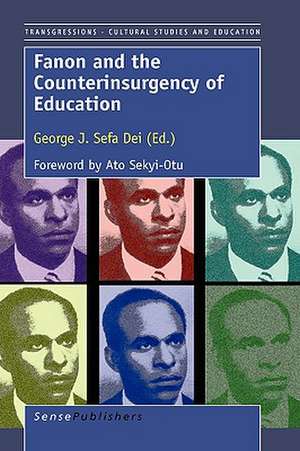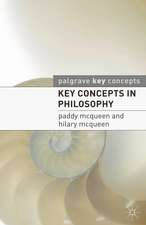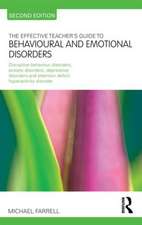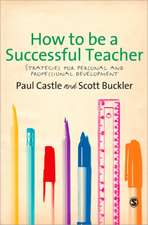Fanon and the Counterinsurgency of Education
Editat de George J. Sefa Deien Limba Engleză Hardback – 3 ian 2010
| Toate formatele și edițiile | Preț | Express |
|---|---|---|
| Paperback (1) | 249.01 lei 38-44 zile | |
| Brill – 31 dec 2009 | 249.01 lei 38-44 zile | |
| Hardback (1) | 570.59 lei 38-44 zile | |
| Sense Publishers – 3 ian 2010 | 570.59 lei 38-44 zile |
Preț: 570.59 lei
Preț vechi: 704.43 lei
-19% Nou
Puncte Express: 856
Preț estimativ în valută:
109.19€ • 113.35$ • 91.05£
109.19€ • 113.35$ • 91.05£
Carte tipărită la comandă
Livrare economică 18-24 martie
Preluare comenzi: 021 569.72.76
Specificații
ISBN-13: 9789460910432
ISBN-10: 9460910432
Pagini: 238
Dimensiuni: 156 x 234 x 14 mm
Greutate: 0.51 kg
Editura: Sense Publishers
ISBN-10: 9460910432
Pagini: 238
Dimensiuni: 156 x 234 x 14 mm
Greutate: 0.51 kg
Editura: Sense Publishers
Descriere
Descriere de la o altă ediție sau format:
Fanon and the Counterinsurgency of Education takes up the challenge of an anti-colonial reading of Fanon to broach questions of identity, difference and belonging, and the implications for schooling and education. The authors deliberately offer a careful and selective capturing of Fanon’s works, pointing to the relevance for oppressed communities as they resist re-organized colonial relations in schooling and education. While colonialism and neo-colonialism have functioned and continue to function differently in diverse environments and social contexts, contributions in the book enthuse that we must raise new questions in a bold attempt to re-theorize colonial relations, social difference and the representational politics of education. Educators must ask new questions in order to contribute to knowledge of how to resist the entrapments of colonialism, racism, exploitation and alienation. Frantz Fanon’s oeuvre is informative to the pursuit of critical education, especially, when we examine the colonial encounter and the colonized experience. The book offers concrete lessons in the struggle to revise education to meet the needs of diverse communities.
Fanon and the Counterinsurgency of Education takes up the challenge of an anti-colonial reading of Fanon to broach questions of identity, difference and belonging, and the implications for schooling and education. The authors deliberately offer a careful and selective capturing of Fanon’s works, pointing to the relevance for oppressed communities as they resist re-organized colonial relations in schooling and education. While colonialism and neo-colonialism have functioned and continue to function differently in diverse environments and social contexts, contributions in the book enthuse that we must raise new questions in a bold attempt to re-theorize colonial relations, social difference and the representational politics of education. Educators must ask new questions in order to contribute to knowledge of how to resist the entrapments of colonialism, racism, exploitation and alienation. Frantz Fanon’s oeuvre is informative to the pursuit of critical education, especially, when we examine the colonial encounter and the colonized experience. The book offers concrete lessons in the struggle to revise education to meet the needs of diverse communities.
















